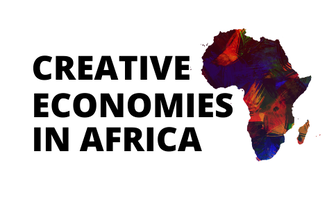
The AHRC funded international research network "UNDERSTANDING AND SUPPORTING CREATIVE ECONOMIES IN AFRICA" run between 2017 and 2020. While the official network activities are now ended, we are still actively writing and sharing information from our research findings and work.
Keep up to date through our blog and read our research outputs.
You can still join our mailing list or get in touch with us via the form
Keep up to date through our blog and read our research outputs.
You can still join our mailing list or get in touch with us via the form
Aims & Objectives
In recent years there has been a growing interest in the role that cultural and creative industries play in developing economies - both in terms of their economic contribution but also in connection with social change and cultural engagement (UNESCO, 2013). To contribute to this field and to support related policy agendas, the research network will connect and mobilise different communities, including academics, practitioners in the creative/cultural sector and cultural and creative policy bodies. The aim will be to develop a better understanding of the creative economies in emerging African countries and to explore strategies to encourage and enable sustainable context-specific cultural, social and economic development.
In line with the Highlight Notice and the UN 2030 Agenda for Sustainable Development, which aims to build collaborations across a range of countries which receive Official Development Assistance (ODA), the research network will connect and mobilise different communities, including academics, practitioners in the creative/cultural sector and cultural and creative policy bodies. It aims to develop a better understanding of the creative economies in emerging African countries and to explore strategies to encourage and enable sustainable context-specific cultural, social and economic development. The network will provide a platform for academics, creative practitioners, and policy and network bodies to reflect on their work and practice in relation to creative economies in Africa. It will facilitate knowledge exchanges between the Global North and the Global South, highlighting the importance of context specific knowledge and encouraging connections between local
cultural production networks.
The research network has four main objectives:
1. Compile a literature review of existing research which aims to understand the specific context of emerging creative economies in Africa, with a focus on the role of creative education, cultural production networks and policy;
2. Develop an open access knowledge platform which acts as a point of reference for the work of academics and
practitioners in this area, with case studies, links, interviews, working papers and policy briefings;
3. Through systematic analysis, develop a clearer articulation of the relationship between localised knowledge and practice in the creative economies of three African countries (Kenya, Nigeria and South Africa) and opportunities for the development of sustainable ecologies of cultural production and consumption;
4. Explore the potential role that universities might play in the African context for bringing together researchers, creative practitioners, policy makers and civil society to work towards sustainable and local cultural development.







